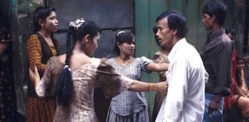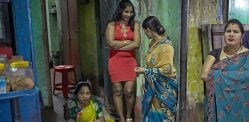"Do what you want to do but earn money."
In Pakistan, prostitution exists as an open secret, publicly condemned but privately sustained.
Though illegal and considered immoral, this trade thrives, fuelled by a powerful mix of poverty, social pressure, and systemic vulnerability.
A research paper published by lecturer Basit Habib from Bahauddin Zakariya University offers a stark and deeply human look into this hidden world.
Based on interviews with 100 sex workers in the Punjab province, the study cuts through speculation to reveal the grim mechanics of the trade, the motivations of the women involved, and the profound dangers they face.
It examines the societal cracks that allow this industry to flourish, providing a data-driven look at a reality many prefer to ignore.
Poverty, Patriarchy and Impossible Choices
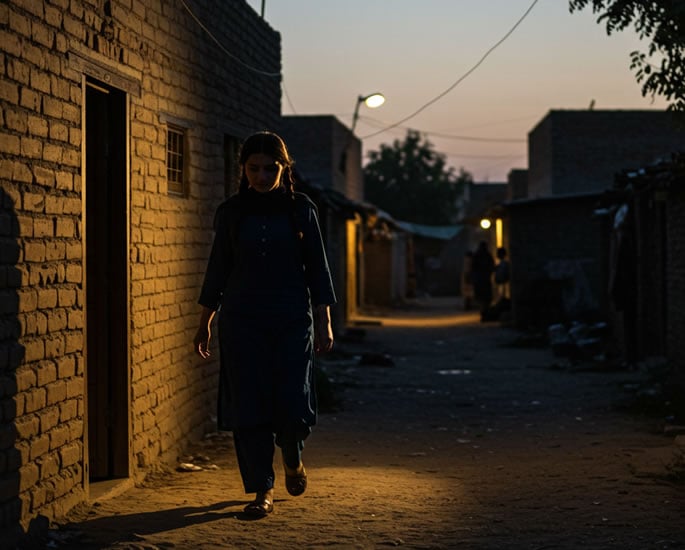
According to the research, the main reason women enter prostitution in Pakistan is a lack of money.
A staggering 77% of the women interviewed joined the profession because they had no other way to meet their basic financial needs.
This is not a choice made lightly but one born of utter desperation.
This economic coercion is worsened by a severe lack of education and job prospects.
Nearly half of the sex workers (49%) had not even finished primary school. Another 35% only managed to pass the primary level, and just 6% had an education above the matriculation level.
With such limited educational backgrounds, the doors to legitimate, well-paying employment are firmly closed, leaving them with very few options for earning a living.
In many cases, the trade operates with the consent of the family, with 70% of women working with their family’s knowledge and approval.
This points to a devastating reality where families, trapped in poverty, are forced into making unimaginable choices.
One woman’s story captures this desperation perfectly.
She was struggling to find a job and on the day of a job interview, her father told her:
“If you get the job, fine; else, don’t come home empty-handed. Do what you want to do but earn money.”
When she didn’t get the job, she began selling her body to earn money.
Her story shows that for many, prostitution is a last resort, a survival tactic in a society that offers few others.
The Varied & Dangerous World of Sex Work
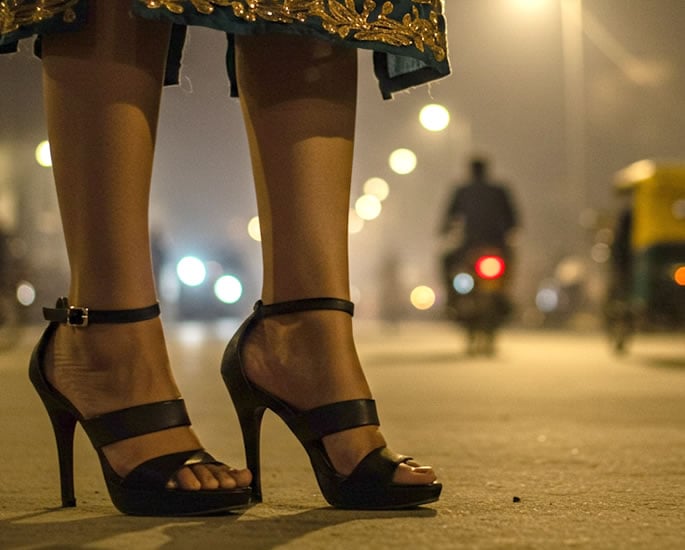
Prostitution in Pakistan is not a single, uniform industry. It takes many forms, each with its own structure and risks.
The most visible are the street workers, often newcomers or those without the protection of an organised network.
As the study describes, these women stand on roadsides, using “artificial jewellery, high heels with polished nails and using their body language” to attract clients.
They are frequently in desperate need of cash and face the greatest dangers, from violent clients to police harassment.
Then there are the brothels, the traditional hubs of the sex trade often found in historic Red Light districts. These are established operations where clients can choose from a number of women.
In these settings, women may find a degree of safety in numbers but are often under the strict control of the house ‘madam’ or owner.
The study notes that 45% of prostitutes work exclusively in brothels for safety reasons.
The study also highlights how the trade has modernised through escort services, where a client can book a woman online or over the phone. This format offers more discretion and has become widely seen as women’s mobility has changed.
The service is provided at the customer’s chosen location, whether it’s a home, a hotel, or even the back of a car.
No matter the setting, the power imbalance is severe.
A “pimp”, who can be male or female, often controls the women’s earnings and safety. In many arrangements, women are essentially rented out.
Pimps can take a huge cut, leaving the woman with as little as “10 to 15 per cent of the amount paid”.
This system ensures that even in a profession they entered to find financial freedom, many women remain trapped in dependency and unable to escape the cycle of poverty.
Independent workers, who make up 35% of the sample, fare better but must manage their own contacts and safety, which carries its own set of risks.
Double Standards
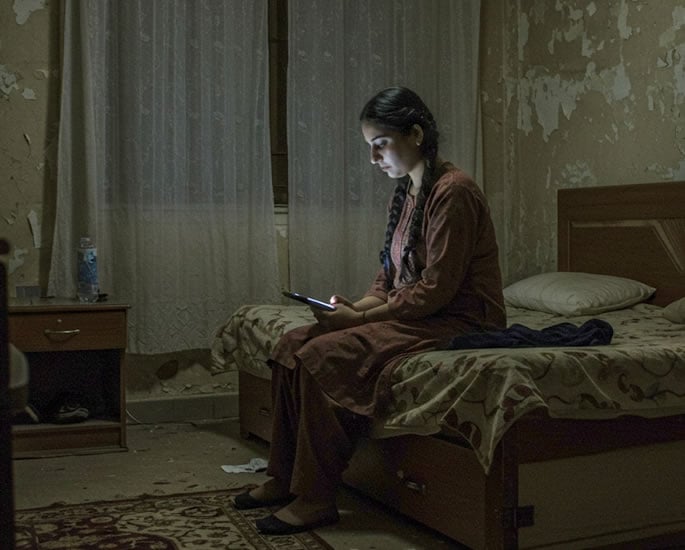
Pakistan’s public stance on prostitution is one of strong condemnation. Yet, the demand that keeps the industry alive comes from within the very same society.
This contradiction creates a perilous world for sex workers, who are both sought after and despised.
An overwhelming 86% of the women felt that society treated them “totally unfair”.
This unfairness often turns violent, with 74% of prostitutes having faced violence, 60% experiencing physical attacks and 40% suffering psychological abuse from clients and pimps.
High-profile “call girls” who service wealthy clients reported less violence, but for the majority, abuse is a constant and expected part of the job.
The legal system offers little help.
Prostitution is illegal, with harsh penalties for those caught.
The law states that selling a person for intercourse can lead to 25 years in prison.
However, enforcement is inconsistent and often targets the vulnerable women rather than their clients or traffickers.
A pimp interviewed for the study observed that the old red-light districts declined not because the trade disappeared, but because they became “unfashionable for the rich and influential”.
He made a chilling point, stating that women are “commonly sold in all strata of our society… ‘one sold in the name of sin, and the other in the name of honour’.”
This reveals a deeper truth: women are treated as commodities in many parts of society.
The patriarchal system that shames sex workers is the same one that creates demand for their services and allows violence against them to go unpunished.
The Hidden Health Crisis

Beyond the immediate threats of violence and exploitation lies an equally deadly danger: a major public health crisis.
In Pakistan, there is a shocking lack of knowledge about sexually transmitted diseases (STDs), with 80% of the interviewed women having “zero per cent knowledge about such diseases”.
Another 20% had only “a little bit of information”.
This widespread ignorance reflects a systemic failure to provide basic health education and services to the most marginalised people in the country.
This has devastating results.
It is estimated that 84% of these women carry HIV, a statistic that signals a public health catastrophe in the making.
The problem is worsened by the intense stigma around getting tested. Women fear that a positive diagnosis will lead to them being cast out by their families and society, so they avoid seeking medical help.
When questioned, a staggering 42% of the women admitted they didn’t have any kind of health certificate. Only 2% willingly showed one.
The rest had to be prompted to even talk about their health status. In a country where conversations about sexual health are taboo, these women face life-threatening illnesses alone, posing a serious risk to themselves and the wider community.
The lack of awareness and preventative care is a ticking time bomb.
Unfiltered Stories
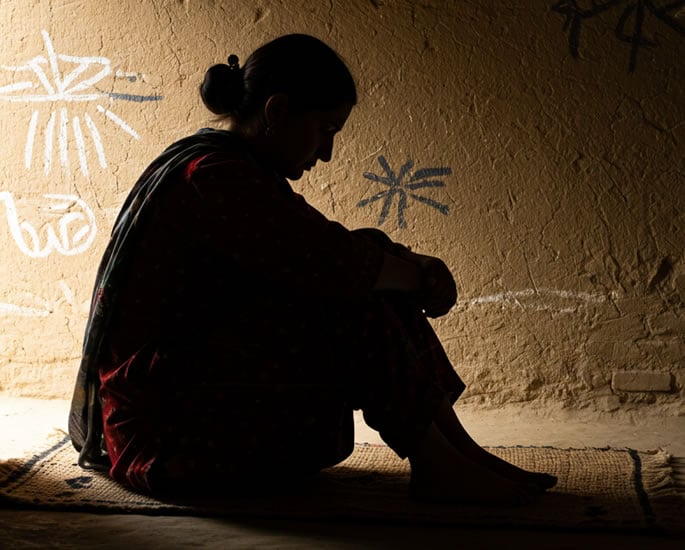
The most powerful truths come from the unfiltered stories of the people living this reality.
Their experiences show a world of coercion, survival, and difficult choices.
One woman explained how a dancer she worked for “indulged me into prostitution” to ensure the “protection and support” of her family.
Her story shows how vulnerability can be exploited by those within the system.
A university graduate revealed her own mother groomed her into sex work, sending her into higher education specifically to make her a “high-class prostitute”.
She uses her fluent English to “trap the high-class people”, using the money to fund her sisters’ education abroad so they too can become “good prostitutes with more advanced techniques”.
These stories demolish simple ideas of victimhood. They show women making calculated decisions in incredibly difficult situations.
While nearly half (48%) wished they could quit, a slight majority (52%) were resigned to staying, not because they wanted to, but because they had “no other skills or education to get work in any other industry”.
They are often the only providers for their families, a burden that chains them to the profession.
Their lives are a constant negotiation for survival, where the shame of their work is the price they pay to feed their loved ones.
The reality of prostitution in Pakistan is a powerful indictment of systemic failure.
It is the grim outcome of a society that neglects to educate its women, denies them economic opportunities, and fails to protect them from harm.
The research shows that women are not entering this trade due to a moral failing, but are being driven into it by poverty, patriarchal control, and a sheer lack of alternatives.
The public condemnation surrounding the profession does nothing to fix its root causes. Instead, it creates a dangerous climate of hypocrisy, violence, and disease that threatens the entire nation.
To truly confront prostitution is to face the uncomfortable truths about inequality and injustice that lie at the very heart of society itself.
Only by addressing these root causes can there be any hope of offering these women a different, safer future.



























































